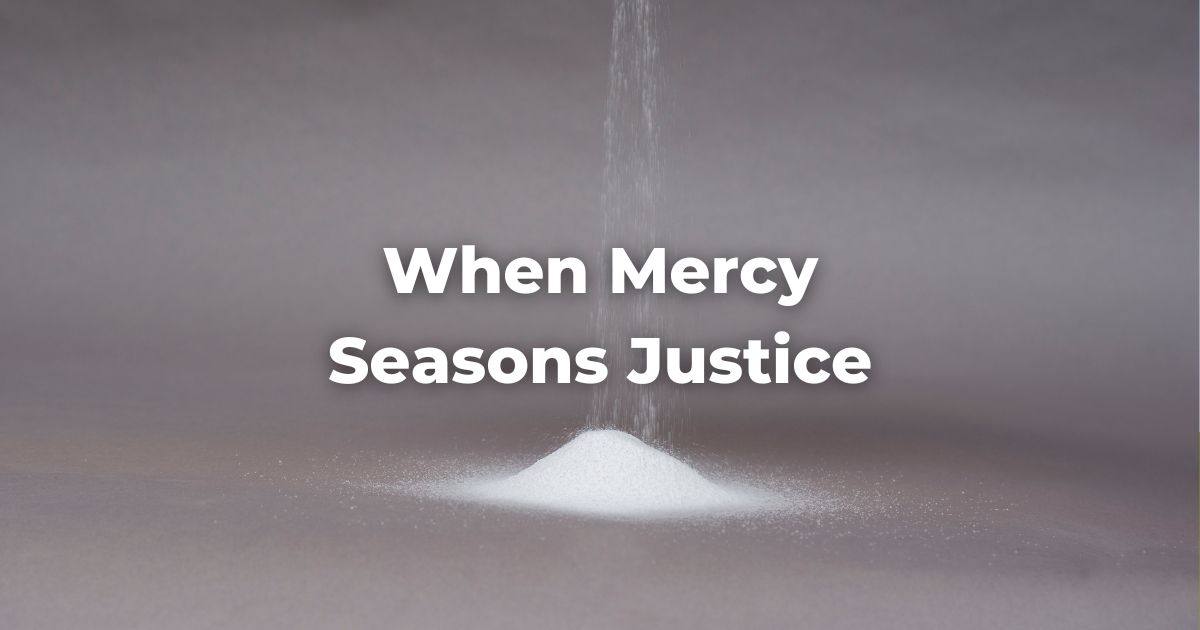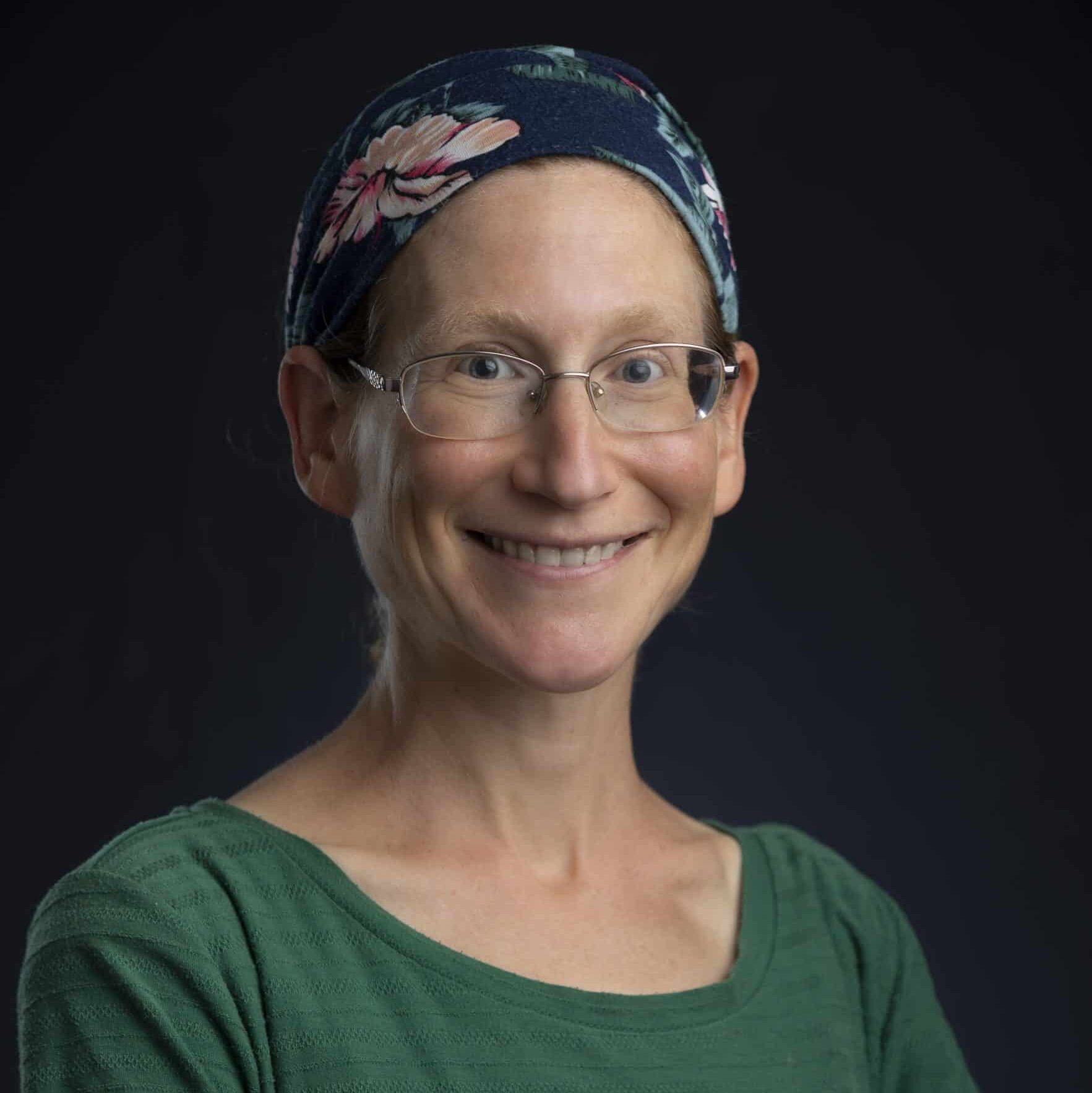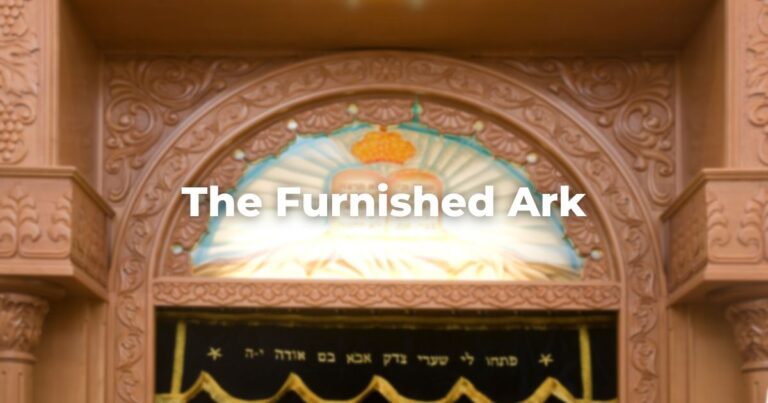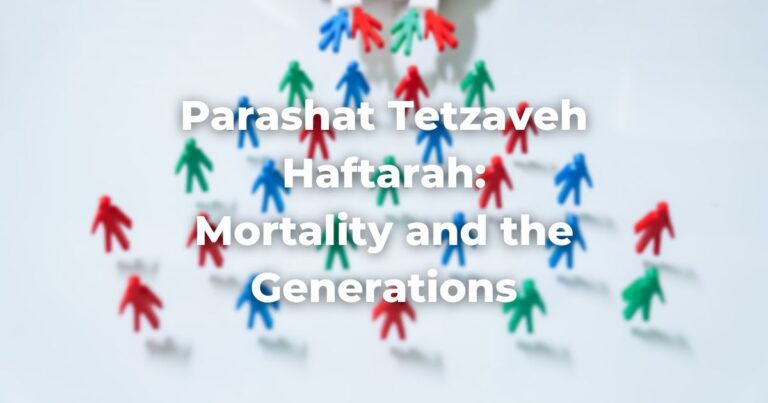Our parashah contains a tense and dramatic conversation between God and Abraham about the destruction of Sodom. Abraham tries to persuade God to spare the city, which is full of sin, but ultimately he is only partially successful in his negotiations.
A close look at the dialogue between God and Abraham, as refracted through the midrashic imagination, suggests that Abraham is trying to teach God a lesson in how to strike the proper balance between justice and mercy – a lesson as important for us as it is for God.
The Talmud (Sanhedrin 109b) depicts Sodom as a city debased by injustice.
The inhabitants abuse widows and orphans, steal from the impoverished, and defraud the wealthy. The rabbis give several colorful examples of such devious and unscrupulous behavior.
For instance, when the Sodomites would come upon a wealthy property owner, they would sit him under an inclined, unstable wall and push it upon him, killing the hapless nobleman and then seizing his possessions.
When a poor person would come to the city, each person would give him a coin marked with that individual’s name; then they would refuse to sell the pauper bread so that he’d die of hunger, at which point they would come and retrieve their coins.
The Sodomites’ chicanery did not just pervade all aspects of society; it was also enshrined in the city’s legislation. If one man cut off the ear of another’s donkey, for instance, the law required the owner to give his donkey to the offender until the ear grew back.
No wonder, then, that God declares, “The outrage of Sodom and Gomorrah is so great, and their sin is so grave” (Genesis 18:20).
And yet it seems surprising that God is bent on destroying the city, because just a few chapters earlier in the book of Genesis, in the story of Noah’s flood, God avowed never to wreak destruction again on account of humanity’s sinfulness: “Never again will I doom the earth because of man, since the devisings of man’s mind are evil from his youth” (Genesis 9:21).
This highly anthropomorphized postdiluvian God has “learned” to overcome a natural instinct for acting in accordance with strict justice, because human beings are inherently evil. How then can God destroy Sodom, using the same verb — l’hashchit — as the destruction of the earth during Noah’s flood (Genesis 6:13, Genesis 9:29)?
Perhaps God recognizes that to destroy Sodom outright would be to ignore the lesson of the flood, namely that justice must be tempered by a realistic expectation of humanity’s moral capabilities.
And so God “checks” the divine tendency for strict justice by consulting with a human being.
The midrashThis word is used in two ways, as both a concept and a literature. As a concept, midrash is the expansive interpretation of biblical texts. The term is used to describe the practice of rabbinic interpretation. As a text, it refers to specific collections of interpretations, particularly from the third to ninth centuries in the Land of Israel and Babylonia. Plural: Midrashim
Read more (Genesis Rabbah 49:2) offers a parable to a king who has three lovers whom he always consulted.
Once the king wanted to do something without consulting his lovers, so he removed the first one from the palace and locked the second one in jail; but the third lover was so beloved that the king could not bring himself to proceed without consulting with her.
So too, God banished Adam and shut Noah in the ark without asking their opinion about excluding humanity from the garden or flooding the earth.
But Abraham was so beloved that God could not destroy Sodom without first consulting with him. Unlike the banishment from Eden (in which Adam was given no say) or the flood (where Noah was informed, but not consulted), this time God is not prepared to destroy unilaterally without first taking counsel with a human being.
As it turns out, Abraham is as outraged by God’s resolve to destroy the city as God is outraged by the city itself – Abraham says to God, “It would be a desecration for you to do such a thing, to destroy the innocent along with the guilty… Will the judge of all the earth not do justice? (Genesis 18:25).
In the midrash (Genesis Rabbah 49:9) Rabbi Acha reads Abraham’s outcry not as a rhetorical question, but as a condemnation:
“The judge of all the earth must not act justly! If You want a world, You can’t have strict justice; if you want strict justice, You can’t have a world. How can you hold the rope by two ends? If you cannot let go a little, the world cannot exist.”
Abraham demands that God give up on the ideal of strict justice so that the world can keep existing. Strict justice is incompatible with God’s promise that after the flood “Cold and heat, summer and winter, day and night shall not cease” (Genesis 9:22).
According to Rabbi Acha, Abraham reminds God explicitly of the flood and accuses God of violating that promise: “You swore and said that you would not bring a flood again—why have You violated Your vow? A flood of water you won’t bring, but a flood of fire you will bring?”
Abraham proceeds to negotiate, pleading with God to save the city if there are a minimum number of righteous people.
Abraham starts with fifty, and God agrees to relax the standards of strict justice and spare the city on behalf of fifty innocent people. But Abraham worries that perhaps there aren’t fifty, so he continues to tug on Rabbi Acha’s proverbial rope, bargaining down to ten.
The midrash explains that Abraham stops at ten because he is convinced that he has won God over. As Abraham reasons, there are surely ten innocent people in the city – Lot, his wife, his four daughters, and his four sons-in-law. Not all of those individuals prove righteous, though; the sons-in-law laugh at Lot when he tells them to leave.
Even so, it is by merit of Abraham that God spares Lot and his unmarried daughters, as the TorahRefers to the first five books of the Hebrew Bible, the Tanakh, also called the Five Books of Moses, Pentateuch or the Hebrew equivalent, Humash. This is also called the Written Torah. The term may also refer to teachings that expound on Jewish tradition. Read more teaches: “Thus it was when God destroyed the cities of the plane and annihilated the cities where Lot dwelt, God was mindful of Abraham and removed Lot from amidst the upheaval” (Genesis 19:29).
The rule of strict justice was relaxed somewhat, thanks to Abraham’s intervention.
If the story of Sodom is a sort of sequel to Noah’s flood, then the next chapter in the evolution of God’s relationship to justice, as we shall discover, is God’s threat to destroy the Jewish people after the golden calf: “Now let Me be, that My anger may blaze forth against them and I may destroy them” (Exodus 32:10).
But by this point, Moshe manages to loosen the divine rope even further, and the people are spared in spite of their iniquity. God, through a deepening relationship with humanity over time, gradually relaxes the standards of strict justice.
We all have moments when we are so convinced that we are in the right that we are unwilling to tolerate any deviation from our sense of justice; let us remember, in those moments, that no one can be right all the time while living in the world with others.
Even the Judge of all the earth ultimately learns, through interacting with humanity, to season justice with mercy.
See more: Parashat Vayera
Originally posted as part of the Conservative Yeshiva at the Fuchsberg Jerusalem Center’s Torah Sparks. Support Torah learning from the Fuchsberg Jerusalem Center/Conservative Yeshiva for leaders and seekers around the world here.
Authors
-

Ilana Kurshan teaches TalmudReferring to one of two collections, the Jerusalem and Babylonian Talmuds, edited in the 6th century, that contains hundreds of years of commentary, discussion, and exploration of the ideas in the Mishnah. One could describe it as Mishnah + Gemara = Talmud Read more at the CY. She is the author of If All the Seas Were Ink (St. Martin’s Press, 2017) and Why is This Night Different From All Other Nights (Schocken, 2005). She has a degree in History of Science from Harvard and in English literature from Cambridge, and has worked in literary publishing both in New York and in Jerusalem – as a translator, a foreign rights agent, and as the Books Editor of Lilith Magazine. Since October 2020, Ilana has been a regular contributor to Torah Sparks, FJC’s weekly parashat hashavuah blog.
View all posts -



The Fuchsberg Jerusalem Center (FJC) is a home in the heart of Jerusalem where leaders and seekers can find an authentic place in Jewish tradition to call their own. FJC offers opportunities to study, pray and explore within an egalitarian and inclusive setting, creating multiple pathways for finding personal and communal meaning.
View all posts






